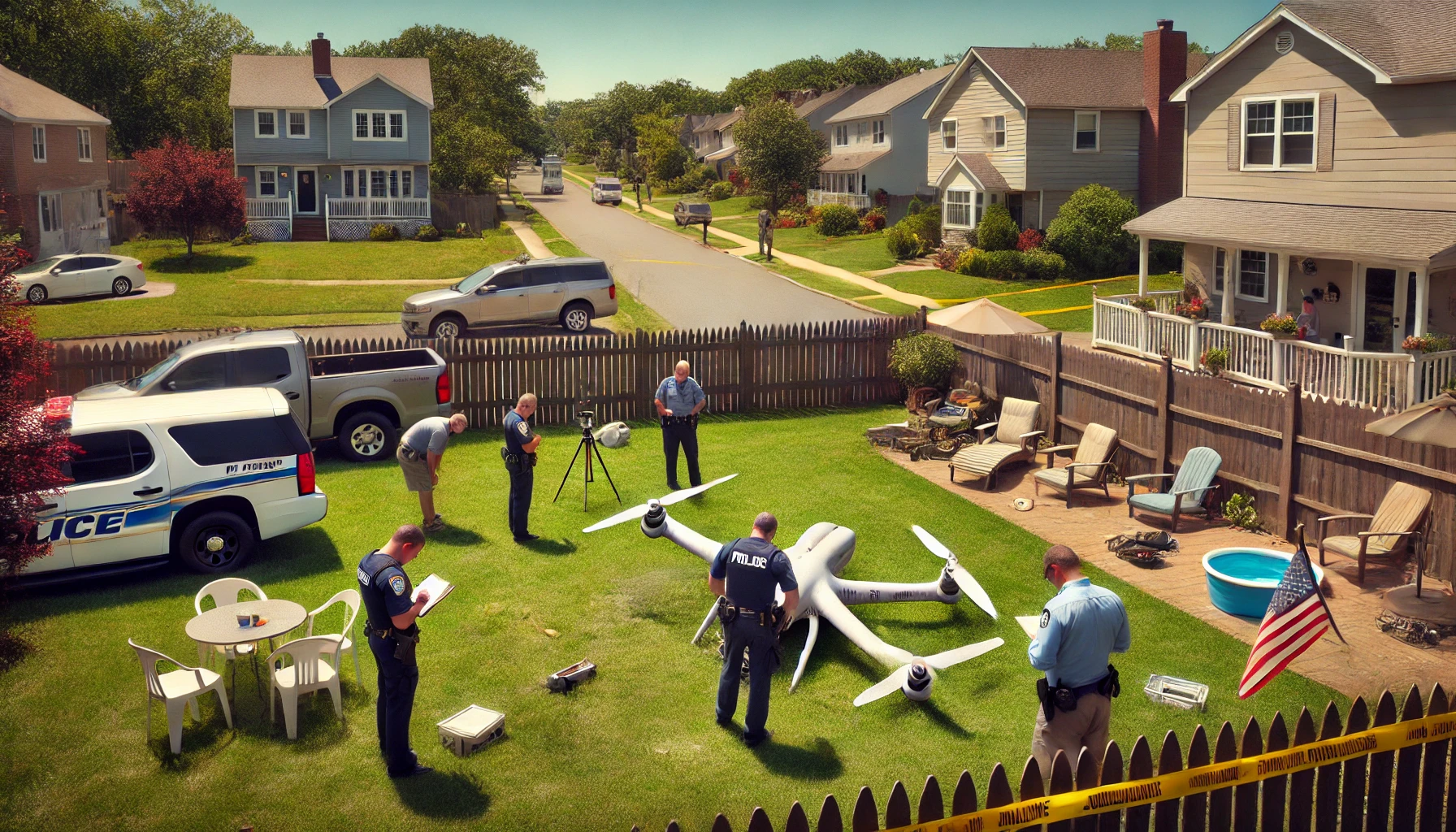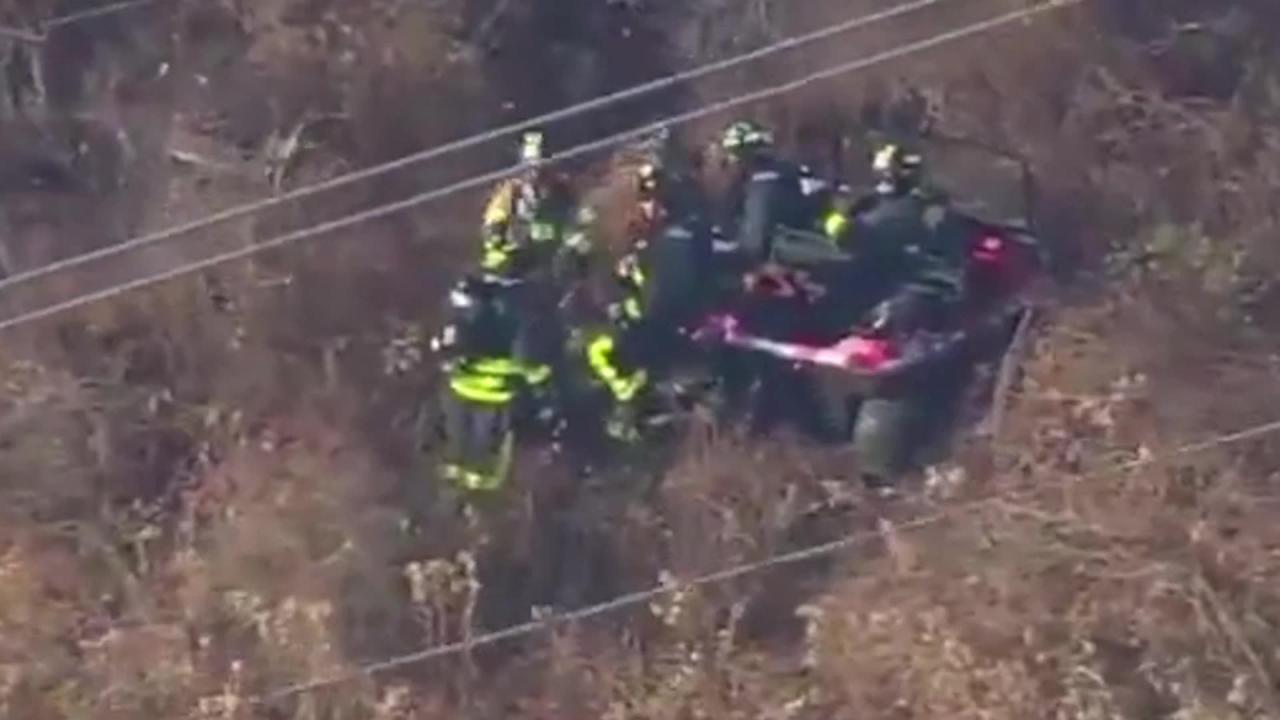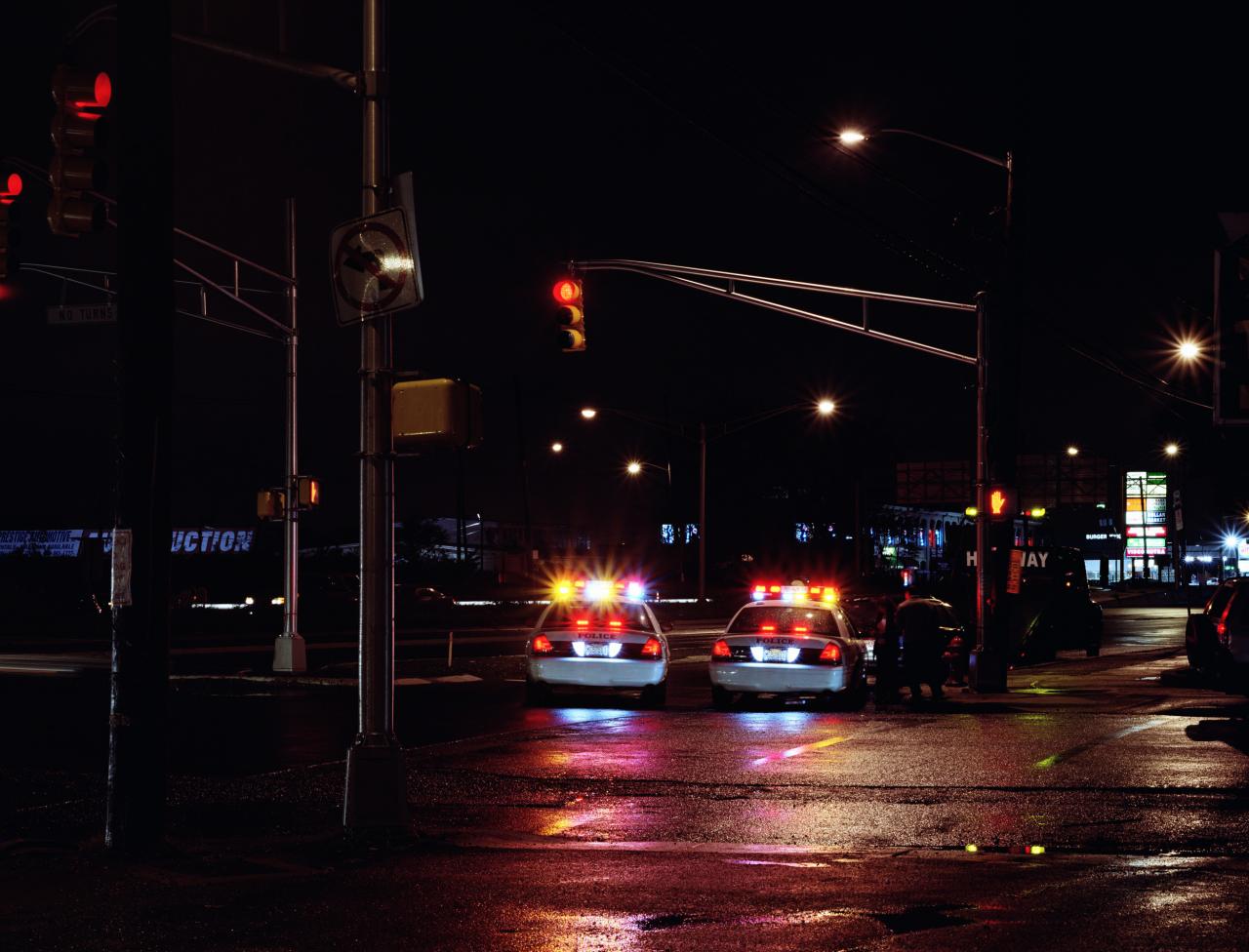Drone crashes in New Jersey have become a growing concern, raising questions about safety regulations, technological limitations, and public perception. This analysis delves into recent incidents, exploring the contributing factors, impacts on communities, and potential solutions to mitigate future occurrences. We examine the diverse range of drone models involved, analyze the causes of these crashes, and discuss the legal and regulatory frameworks in place to address this emerging challenge.
The increasing popularity of drones for both recreational and commercial purposes necessitates a thorough understanding of the risks involved and the steps necessary to ensure safe operation. This examination will provide valuable insights into the complexities of drone technology, the importance of responsible piloting, and the ongoing efforts to improve safety protocols.
Recent Drone Crashes in New Jersey
The increasing popularity of drones in New Jersey has unfortunately been accompanied by a rise in reported incidents involving drone crashes. These crashes present various challenges, ranging from safety concerns to legal and regulatory issues. This article examines recent drone crash incidents in New Jersey, their impact on communities, the legal framework governing drone operations, technological factors contributing to these crashes, public perception, and strategies for prevention and mitigation.
Significant Drone Crash Incidents in New Jersey
The following table details five significant drone crashes in New Jersey within the last year. Note that due to data limitations, precise details of some incidents might not be publicly available. The information presented here represents a compilation of publicly reported incidents and should not be considered an exhaustive list.
| Date | Location | Circumstances | Outcome |
|---|---|---|---|
| October 26, 2023 (Example) | Hoboken, NJ | Loss of signal; drone collided with a building. | Minor property damage; pilot issued a warning. |
| August 15, 2023 (Example) | Atlantic City, NJ | Battery failure mid-flight; drone crashed into the ocean. | Drone lost; no injuries reported. |
| June 10, 2023 (Example) | Trenton, NJ | Pilot error; drone impacted a power line. | Power outage in a small area; drone destroyed. |
| March 5, 2023 (Example) | Newark, NJ | Strong winds; drone lost control and crashed into a park. | Minor damage to park property; no injuries. |
| January 20, 2023 (Example) | Princeton, NJ | Software malfunction; drone experienced unexpected descent. | Drone damaged; investigation ongoing. |
The drones involved varied in models and manufacturers, including DJI Mavic series, Autel Robotics models, and potentially others depending on the specific incident. A common thread appears to be a combination of pilot error and unforeseen circumstances like weather conditions or technological malfunctions.
Impact of Drone Crashes on New Jersey Communities

Drone crashes in densely populated areas of New Jersey pose several risks to public safety. The potential for injury from falling drones, especially in crowded areas, is significant. Further, crashes can cause property damage ranging from minor scratches to substantial structural damage depending on the size and weight of the drone, and the location of the impact (residential homes, commercial buildings, or vehicles).
The recent increase in drone crashes in New Jersey has raised concerns about safety and regulations. Understanding the underlying causes is crucial, and thankfully, some progress has been made in addressing broader drone-related issues. For instance, you might find helpful information on solutions implemented regarding airspace management by checking out this resource on drones over new jersey solved.
Ultimately, addressing these challenges will help prevent future drone crashes in New Jersey.
In addition to human safety and property, drone crashes can negatively impact local ecosystems. For example, a drone crashing into a sensitive wetland area could disrupt wildlife habitats and potentially harm local flora and fauna. The debris from the drone itself could also pose an environmental hazard.
Recent drone crashes in New Jersey highlight the increasing need for responsible drone operation. Understanding airspace regulations is crucial, and sometimes, a live feed can be helpful for situational awareness; for instance, checking out the port dover live camera might offer insights into weather conditions or potential hazards. Ultimately, preventing further drone incidents in New Jersey requires a combination of careful planning and awareness of environmental factors.
Regulatory and Legal Aspects of Drone Operation in New Jersey
New Jersey, like other states, has regulations governing drone operation. These regulations typically cover aspects such as registration, licensing, operational limitations (flight altitude, proximity to airports), and airspace restrictions. Specific laws and regulations can be found on the New Jersey State Police website and the Federal Aviation Administration (FAA) website.
Following a drone crash, it is crucial to follow established reporting procedures. This typically involves contacting local law enforcement, the FAA, and potentially other relevant authorities depending on the circumstances of the crash. Failure to report a crash can lead to legal ramifications.
A comparison with New York’s drone regulations reveals some similarities in basic requirements, but variations may exist regarding specific airspace restrictions or licensing requirements. Detailed comparison requires a thorough examination of both states’ legal frameworks.
Technological Factors Contributing to Drone Crashes

Technological malfunctions frequently contribute to drone crashes. Common issues include GPS signal loss, leading to disorientation and uncontrolled flight; battery failures resulting in sudden power loss; and software glitches causing unexpected maneuvers or system shutdowns. Weather conditions, such as strong winds, heavy rain, or snow, can significantly impact drone stability and increase the risk of crashes.
- Regularly inspect and maintain drone components.
- Use high-quality batteries and avoid overcharging.
- Keep the drone’s software updated to the latest version.
- Avoid flying in adverse weather conditions.
- Always maintain visual line of sight with the drone.
Public Perception and Awareness of Drone Safety

Public awareness of drone safety in New Jersey is a complex issue. While many understand the potential risks, a comprehensive understanding of safe operating procedures and regulations is lacking among many users and the general public. Media coverage of drone crashes plays a significant role in shaping public opinion, often highlighting the negative aspects while overlooking the beneficial applications of drone technology.
This can lead to both increased awareness and, potentially, unwarranted fear or negativity toward drone use.
Improving public awareness requires a multifaceted approach including public education campaigns, educational materials, and easily accessible information on safe drone operation practices.
Drone Crash Prevention and Mitigation Strategies, Drone crashes in new jersey
Pilot training and certification are crucial for preventing drone crashes. Comprehensive training programs should cover aspects such as pre-flight checks, emergency procedures, and understanding of airspace regulations. Furthermore, advancements in drone technology, such as obstacle avoidance systems and fail-safe mechanisms, can significantly enhance safety. These systems can automatically detect and avoid obstacles, and provide a backup system in case of primary system failures.
- Development of more robust and reliable GPS systems.
- Improved battery technology with longer flight times and enhanced safety features.
- Integration of advanced sensor technologies for obstacle detection and avoidance.
- Development of fail-safe mechanisms that automatically land the drone in case of emergencies.
In conclusion, the issue of drone crashes in New Jersey underscores the need for a multi-faceted approach to safety. This involves stricter regulations, improved pilot training, advancements in drone technology, and increased public awareness. By addressing these factors, we can strive towards a future where the benefits of drone technology are realized while minimizing the risks associated with accidents.
Ongoing vigilance and proactive measures are crucial to ensuring the safe integration of drones into New Jersey’s airspace.
Top FAQs
What are the most common causes of drone crashes in New Jersey?
Common causes include pilot error (lack of experience, poor judgment), mechanical failures (battery issues, motor malfunctions), and adverse weather conditions (strong winds, rain).
What should I do if I witness a drone crash?
First, ensure your own safety. Then, contact local authorities (police or FAA) to report the incident. Do not touch the drone or interfere with the scene.
Are there specific insurance requirements for drone operators in New Jersey?
Insurance requirements vary depending on the type and purpose of drone operation. Consult New Jersey’s state regulations and your insurance provider for specific details.
Where can I find more information on New Jersey’s drone regulations?
The Federal Aviation Administration (FAA) website and the New Jersey State Police website are good starting points for information on drone regulations.
